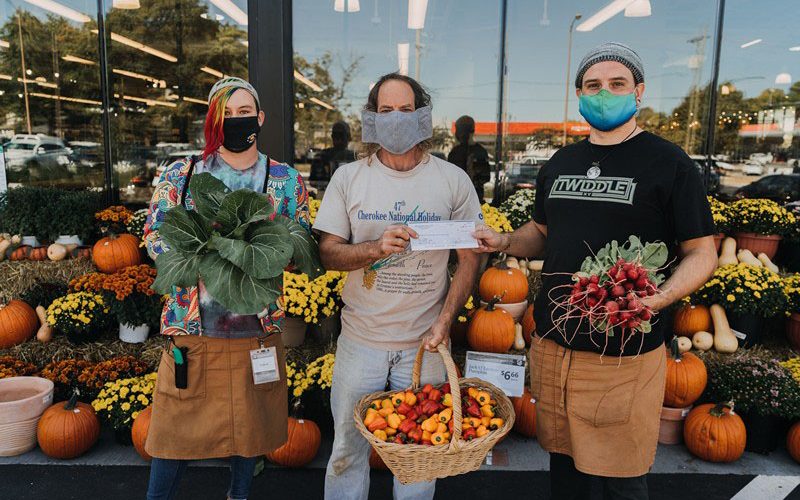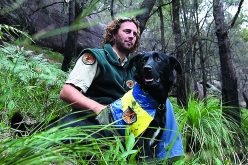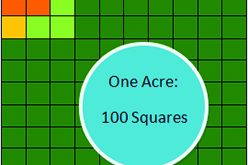Ozark Natural Foods customers round up to help
AMANDA BANCROFT
Making Ripples
Some things in life are optional, like fruitcake. You can take it or leave it, according to your taste. But none of us can get by without calories. Every minute, farmers are out there laboring over nourishment headed our way. How many months of cultivation and planning went onto our plate today? How far did it have to travel to reach us? The Farmhand program (formerly New Leaf) run by Ozark Natural Foods Co-Op offers funding to farmers to help keep calories locally grown within a 100-mile radius and also assists local nonfood businesses who sell to the Co-Op.
This fundraiser is sustained by donations from Co-Op customers who opt to round up at the register in support of the current Farmhand project, which changes as each new goal is met. Since the program’s inception in 2017, donations have added up to $67,826.14 for 27 project improvements that help local producers to better serve our communities by expanding their capacity. That’s a lot of ripples in three years!
Pauline Thiessen is the Co-Op’s fresh foods manager and is a local farmer herself, selling eggs from her own 78-acre homestead near Marble. She began working at the Co-op 20 years ago at just 14 years of age, and she’s passionate about local farming, sustainable practices and the cooperative business model. Pauline described the variety of projects funded by the program so far.

Clearwater Creek farmer Troy Coleman (center) accepts a Farmhand program check from Ozark Natural Foods Co-Op buyer Dalton Hudson (left) and assistant fresh foods manager Bryan Cheney (right). All three hold the produce grown locally at Clearwater Creek Farm.
(Courtesy Photo/Sydney Henjum for Ozark Natural Foods)
“We have improved access to naturally grown fruit, a diversified array of local produce grown year round, cheese from the last farmstead creamery in Arkansas, pasture-raised poultry from an Afghanistan war veteran, are supplementing the equipment needs of value-added producers challenged by limited access to the university test kitchen, and stepping up to help when a producer gets an unexpected setback or a grant program doesn’t come through.”
Farmhand’s current goal is to raise money for Middle Fork Farm for the purchase of a heater for greenhouse transplants. The previous project successfully raised $1,500 for Clearwater Creek Farm in Fayetteville. Owner Troy Coleman wants to extend the growing season to 52 weeks a year through the purchase of another caterpillar tunnel. The first tunnel (which was also funded through Farmhand) has already boosted the food available from Clearwater Creek Farm, which produces eggplant, watermelon, mixed greens, turnips, cabbage, carrots, radishes, cucumbers and more. Caterpillar tunnels are 14-feet by 60-feet and protect crops from inclement weather and insects, enabling greens to be grown year-round. Wind supports for the tunnels are provided by Farmer’s Friend company and are a part of the kit materials.
After applying and being selected, local producers receive a check to purchase their materials or can be reimbursed for an expense. This prioritization of spreading equity to local, small businesses through the voluntary support of Co-Op members is part of what the cooperative business model is all about. As Pauline reflected, she’s grateful to see this support offered even when times are so uncertain. Not even a pandemic can stop people from making ripples.
Full disclosure: I am a local greeting card artist who sells to the Co-Op but have not applied for Farmhand funding.
Amanda Bancroft is a writer, artist, and naturalist living in an off-grid tiny house on Kessler Mountain. She and her husband Ryan blog about their adventures and offer tips to those wanting to make a difference at www.RipplesBlog.org.










